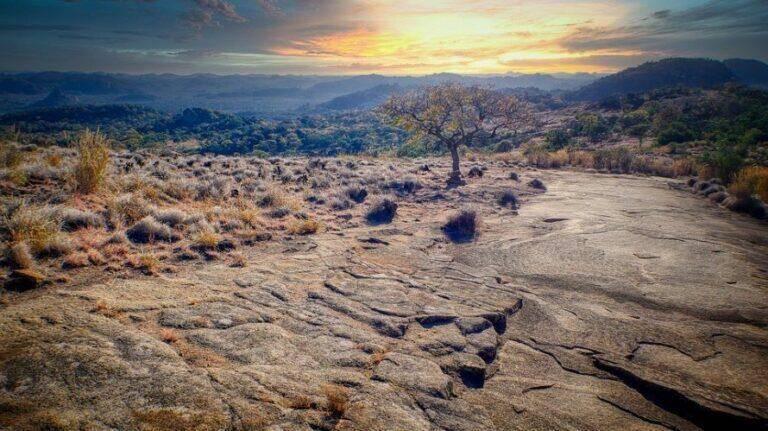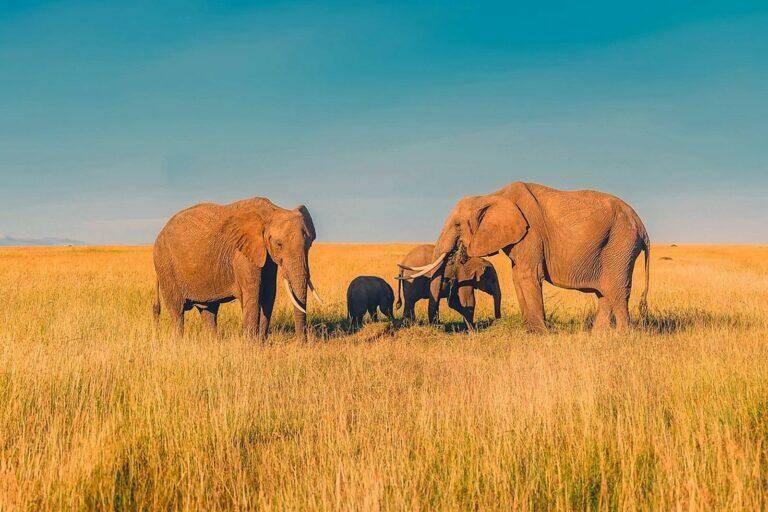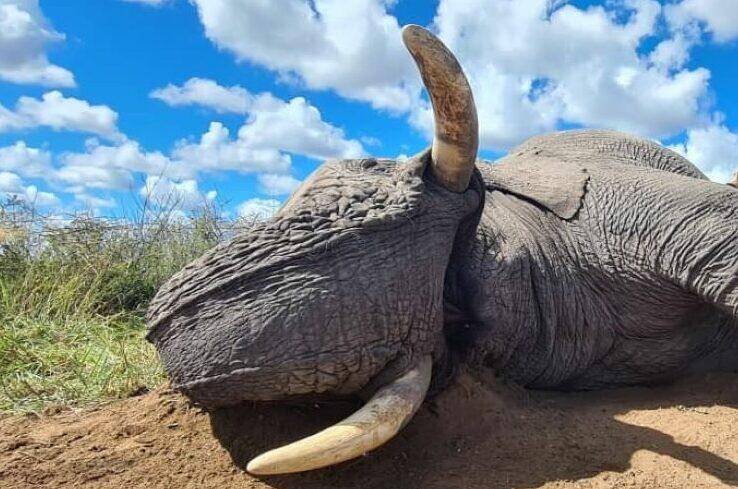[DYNAMIC-BLOGTABLEOFCONTENT]
Let’s First Tackle the Ethical Aspects of Elephant Hunting in Zimbabwe
Observing an elephant herd on a game reserve makes one realize that elephants are sentient beings capable of experiencing pain and suffering. This is evident when watching the interaction between members of the herd, with several coming to help a tiny calf get out of the water, a mother nudging her little one across the road, a tiny baby elephant coming and sniffing your car wheel with his floppy, uncoordinated trunk, the cheeky teenager mock charging, is something that moves and excites every single animal lover. One wonders how anyone can aim a high-calibre rifle at one of these majestic animals and pull the trigger. To do so to be able to show off your trophy back home seems just wrong and inhumane.
Elephant hunting can also be seen to be disrespectful to local traditions and values in countries where elephants have symbolic and cultural importance. From a conservation point of view, it is generally understood that conservation should mean preserving and protecting wildlife. Even regulated hunting has a moral responsibility to protect endangered species.
But, in Hwange National Park, elephants are not endangered, and their numbers threaten to destroy the ecosystem in the park.

While one might feel that economics should not be a factor, it unfortunately is … very much so.
In Zimbabwe, which has economic challenges and relies heavily on tourism income, the economics of any activity plays an important role. Elephant hunting can provide both potential benefits and significant costs.
Trophy hunting, particularly for elephants, attracts a very high fee, thus generating revenue for local communities, conservation and anti-poaching efforts, and habitat management. It also helps manage overpopulation.
Wildlife tourism, and, increasingly, photographic tourism, form a large portion of the tourism income for Zimbabwe. Tourists come to Zimbabwe typically to see the Big 5 (elephant, buffalo, lion, leopard, and rhino), with the other main attraction being the mighty Victoria Falls. There needs to be an effective balance between tourism and hunting. While regulated hunting can benefit the community through employment, meat supply, and community infrastructure such as schools and clinics, the funds must be used and distributed as described. Management of this is vitally important.
The most important aspect - ecology.
Biodiversity, population management, and ecosystem management can all be impacted by irresponsible or unregulated elephant hunting.
Control of the elephant population is becoming increasingly urgent in Zimbabwe, as the current overpopulation of elephants is causing habitat destruction with negative impacts on other species. Critics argue that elephants’ presence is crucial for the ecosystem. This cannot be disputed, but overpopulation will, conversely, destroy the ecosystem – the numbers must be managed more effectively.
Elephants play a vital role in their habitats, influencing vegetation and the ecosystem. Their presence benefits a wide range of other species. The obliteration, or indiscriminate killing of elephants, as was the case historically, could lead to detrimental ecological effects, altering habitats in ways that will only become apparent in years to come. However, this is only true if the population is at an appropriate level, which it is not. Overpopulation is likely to have far more drastic long-term effects.
One could ask, “What would be the effect of stopping regulated elephant hunting in Zimbabwe?”
Here are some possible answers:
- Ecological Impact: an increased elephant population can result in overgrazing and browsing, leading to vegetation loss with a knock-on effect of other species sharing the habitat. Elephants strip the bark of trees and push them over, which reduces tree density, changing the structure of the landscape, which also impacts other species. With the effects of the changing ecology comes the displacement of species, including the sought-after predators who rely on herbivores for food. An increased elephant population would deplete the water sources, affecting all species.
- Social Impact: More elephants with less vegetation will start to raid community crops, thus increasing human-wildlife conflict, and increasing danger for people living near the elephant habitats. The raiding of crops leads to reduced yields and increased costs spent on deterring elephants.
- Economic Impact: Tourists don’t only want to see elephants, they also want to see the herbivores and predators, and a healthy landscape, all of which would be absent if the elephant population is allowed to get out of control. The revenues generated from regulated hunting will cease, resulting in insufficient funds for park maintenance, conservation, fighting anti-poaching, managing the habitat, and supporting the communities.
I own up to being one of the majority who wonder how one can aim a high-caliber rifle at a magnificent tusker and pull the trigger to end its life. It’s not in my DNA. But I understand the need for regulated hunting to manage the population for all the reasons already given.
My husband and I have traveled extensively throughout Southern Africa, visiting most game reserves. Seeing elephants is always a thrill. In Hwange National Park in Zimbabwe, we encountered massive herds of elephants, with plenty of adorable little ones. We witnessed the destruction of acres and acres of mopane forest. The surrounding areas of the waterholes are barren and devoid of vegetation, having been destroyed by the elephants. It saddens me that elephants need to be destroyed to bring the population under control, so I explored other avenues, such as relocation.

The feasibility of relocating some of the Hwange elephants to other major parks in Zimbabwe, such as Mana Pools and Gonarezhou?
Translocating elephants to other major parks in Zimbabwe could be a potential strategy to reduce Hwange’s elephant overpopulation IF these other parks have the capacity and the appropriate environment to accommodate additional elephants.
For example, while Mana Pools’ current population varies and the capacity for more elephants is not certain, the park has a more complex habitat with a mix of flood plains, woodlands, and riverine areas which could support higher elephant densities. Still, careful consideration would be required to determine the possible resulting habitat degradation and biodiversity loss should this beautiful park become overpopulated.
In the case of Gonarezhou, this park already has a substantial elephant population, although the situation is not as dire as in Hwange. Historically, the park faced challenges with poaching, particularly elephants, for their ivory. However, the park has seen improvement in the situation thanks to community involvement, anti-poaching measures, and international cooperation. The elephants in Gonarezhou are very skittish when they encounter a vehicle, which is likely thanks to their experiences with poachers. An elephant never forgets.
The cost, logistics, and risk factors of translocating elephants need careful consideration and planning. Top of the concerns are the risks of injury, stress-related problems, and even mortality of the elephants. How will they settle in and cohabit with the current resident elephants? How will they adapt to the change in habitat?
In any event, the rest of the parks in Zimbabwe do not have the capacity for the 30,000+ surplus from Hwange.
Zimbabwe’s neighbor, Botswana, is also facing an elephant overpopulation problem, and recently this country’s President Mokgweetsi Masisi threatened to send 20,000 of Botswana’s elephants to Germany in the face of the proposal by Germany that trophy imports be banned!
There is no simple solution. It seems that the 5000 elephant hunting licenses on offer by the Zimbabwe Parks and Wildlife Management Authority have the least negative impact of all the options, with the alternatives to regulated hunting likely to be more destructive to the economy, human-wildlife conflict, the communities, and, most importantly, the elephants.
Having described the effects of the overpopulation of elephants in Hwange National Park, control of the population through, amongst other efforts, regulated hunting will benefit other wildlife tourists and photo-safaris as they should encounter a more beautiful landscape, and continue to see all the herbivores, predators, and birdlife.
It's Time To Act
Nothing can prepare you for the adrenaline you will experience as the first day of the elephant hunt approaches. And we also won’t mention the sleepless night beforehand! As the day dawns that you start your elephant hunt, take a second to appreciate the day before you and what it holds…the opportunity to live a dream and enjoy elephant hunting on the Dark Continent!
